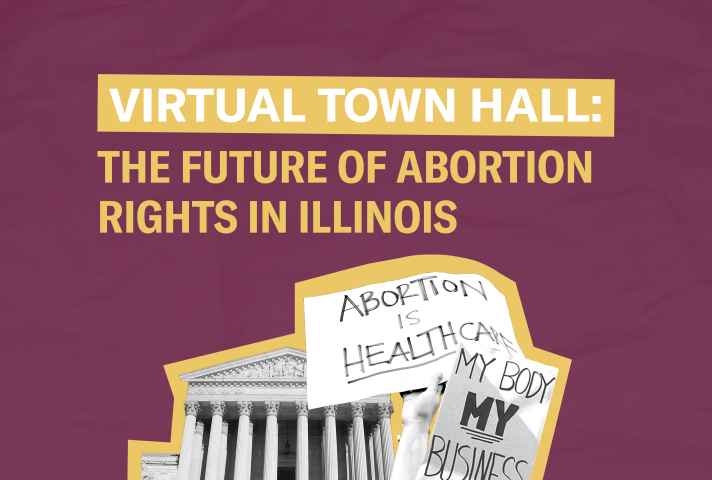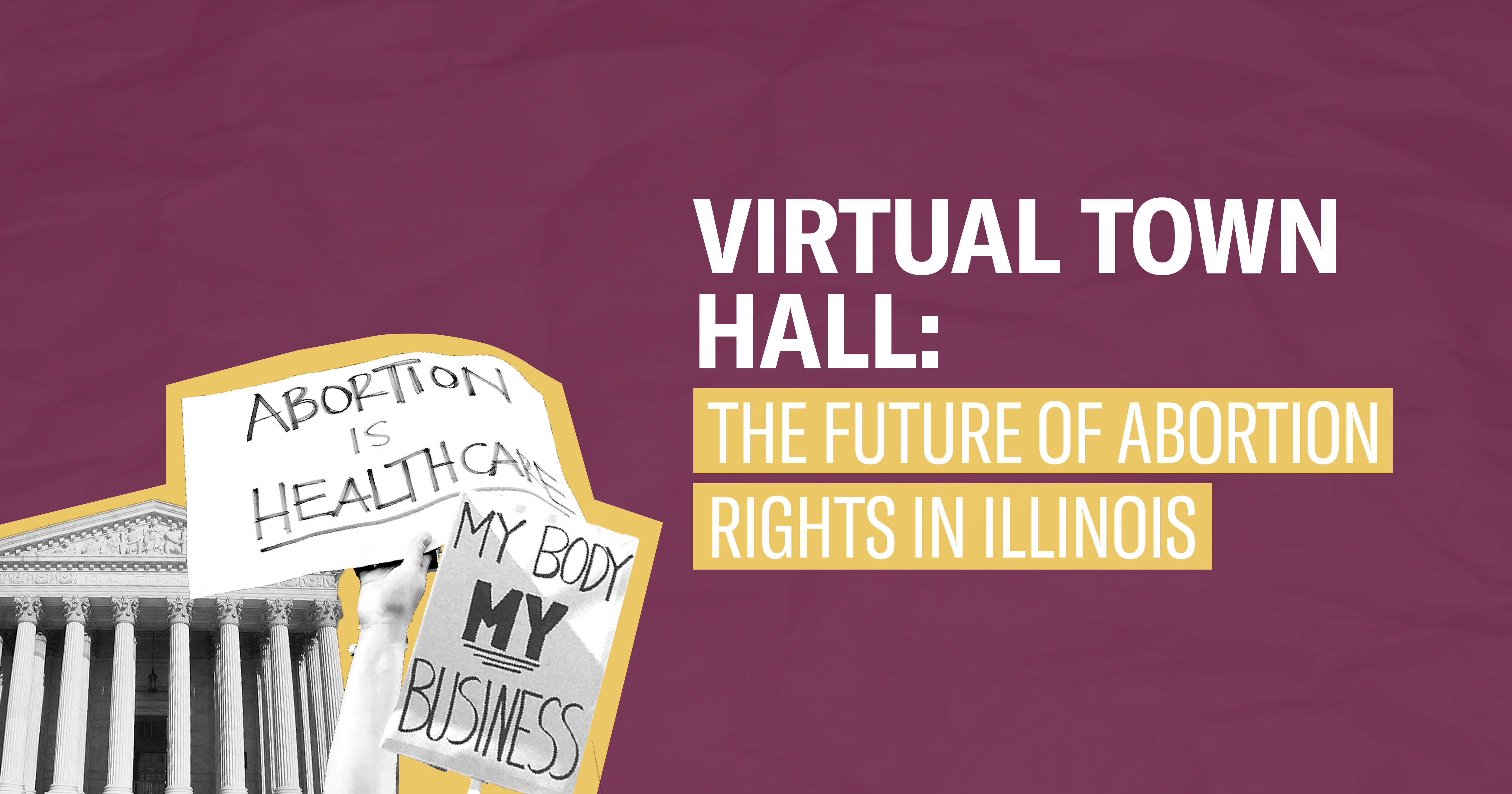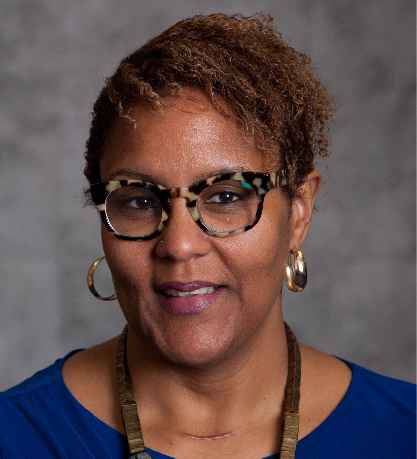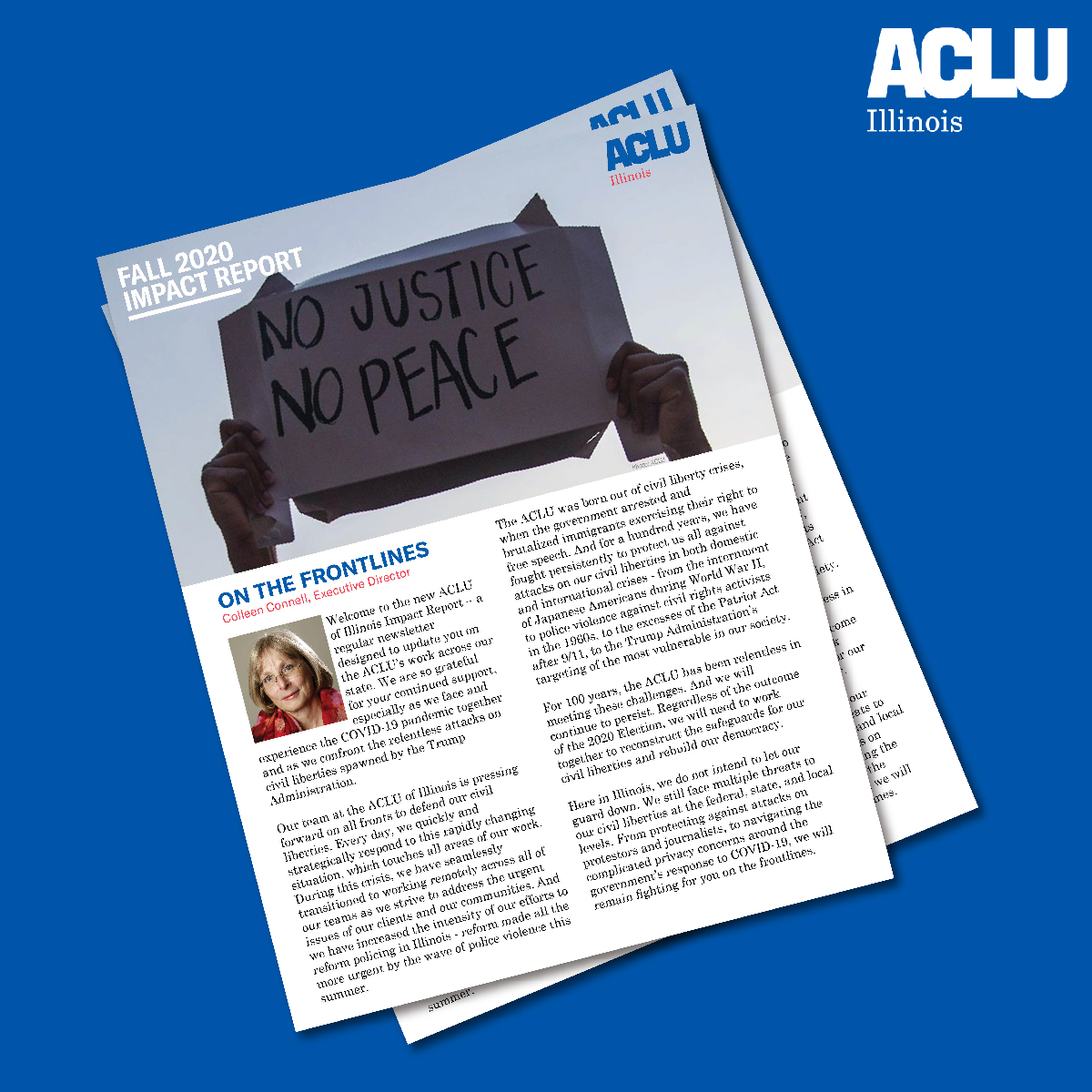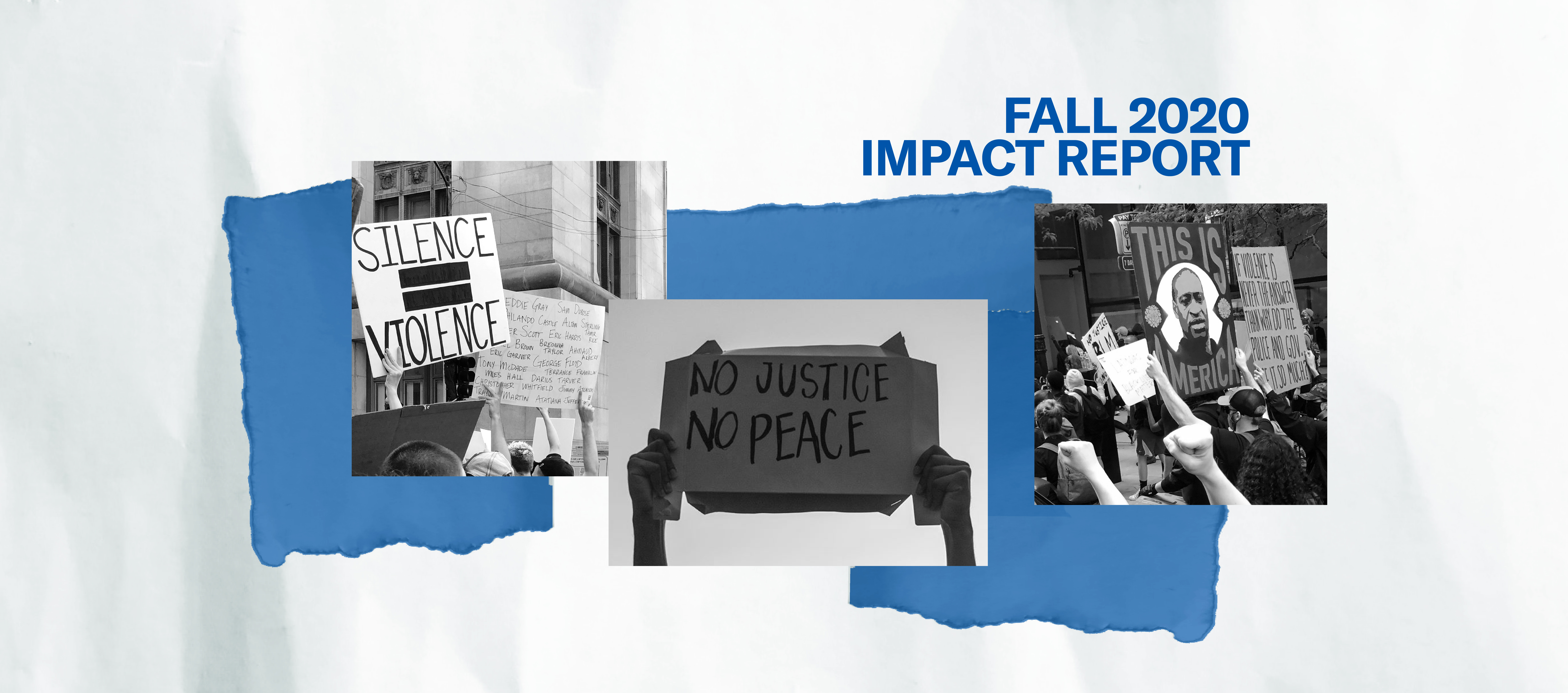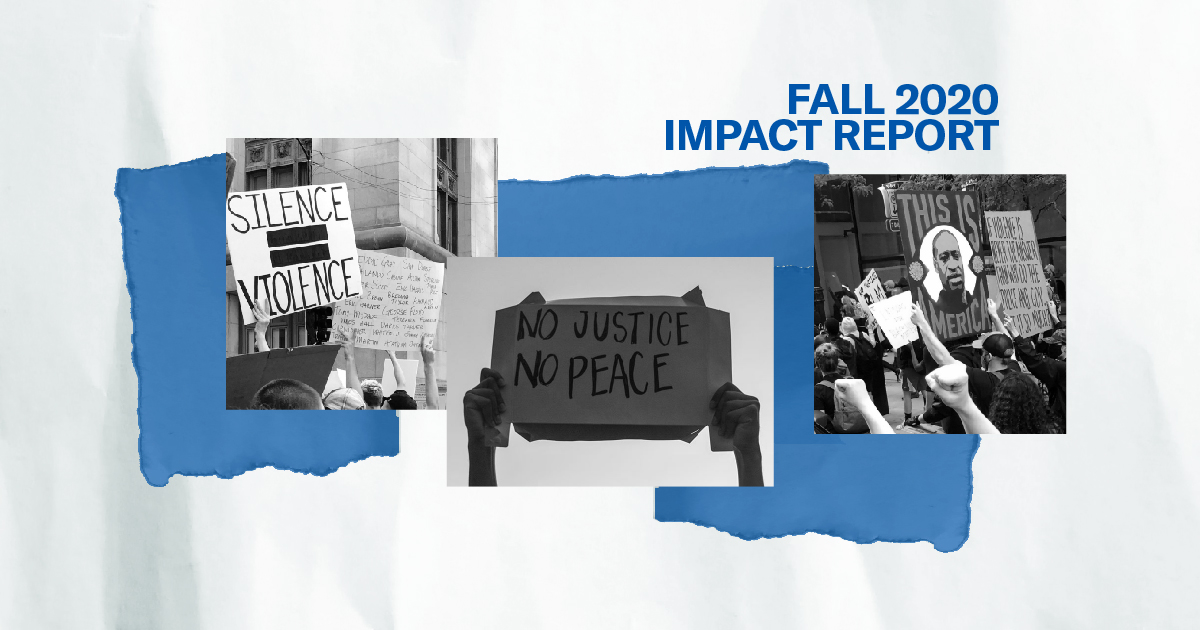|
Just weeks before the COVID-19 outbreak, I returned home to join the ACLU of Illinois. For me, this means working to advance equality, dignity, and liberty across Illinois in the face of an unrelenting pandemic, unprecedented threats to our democracy, and a historic uprising challenging police violence against Black people and structural racism—urgent issues that touch all areas of work at the ACLU of Illinois.
We are meeting this challenge head on. It has never been more important to fight for civil rights and civil liberties, whether through litigation, advocacy, working with coalitions, or lifting up the voices of directly impacted people who call to transform systems fostering police violence, failed health care, and other shameful inequities.
The dire circumstances faced by people in prisons, jails, and ICE detention in Illinois are bone-chilling. Prisons and jails have been vectors for spreading coronavirus since the pandemic began. People are detained in dangerous conditions that increase their risk of contracting COVID-19. Those who are older or have preexisting medical conditions face a one in seven chance of death if they get sick.
This is why we fought for and secured an order from Governor Pritzker suspending transfers of people from county jails to state prisons, safeguarding prisoners, staff, and surrounding communities by helping to prevent COVID-19 outbreaks like the one in Stateville Correctional Center.
We also filed three emergency federal lawsuits and engaged in advocacy for immigrants who are medically vulnerable to severe COVID-19 and are detained by ICE in Illinois jails. We secured the release of five immigrants from ICE detention in McHenry, Kankakee, and Pulaski Counties, so they could return to their homes and families and better protect themselves from COVID-19.
As people across Illinois protest systemic racism and anti-Black police violence, we stand with community partners to challenge police use of excessive force against peaceful protesters.
With coalition partners, we sent an enforcement letter to the monitor and federal court enforcing the consent decree against Chicago Police, detailing how police have repeatedly struck protesters in the head with batons, used tear gas indiscriminately, and retaliated against people who record police violence during protests. The federal court held powerful hearings where members of the public testified about these experiences. And we continue to investigate how police interact with protestors and journalists and to oppose the deployment of federal troops by the Trump Administration.
We also continue to protect rights to reproductive health care, LGBTQ rights, and privacy during the pandemic.
The Illinois Bypass Coordination Project is helping young people access abortion care during the COVID-19 crisis. We continue to enforce the rights of transgender people in Illinois prisons and filed a groundbreaking new case on behalf of a transgender woman who was denied medical care, raped, and abused in federal prison, challenging the Trump administration’s rescission of policy guidance intended to protect transgender prisoners.
We also sued Clearview AI, a shadowy company with a powerful facial recognition tool that captures faceprints of Illinois residents without written and informed consent in violation of the Illinois Biometric Information Privacy Act.
This is just some of the work we have done to use the courts as a tool for protecting civil rights and civil liberties during this crisis. Through these and other efforts, we are working to make real, lasting change for the next generation.
|
